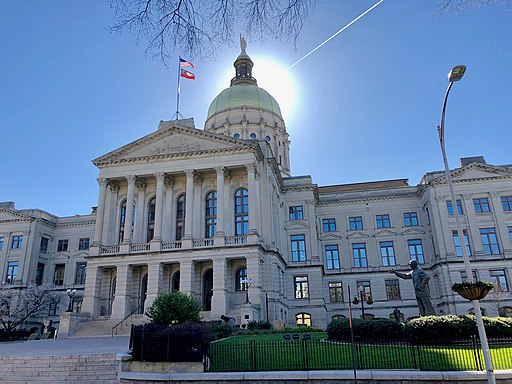There are more than 100 ranked-choice voting (RCV) bills in 2024 state legislative sessions, with nearly a third of the bills seeking to ban or repeal its use.
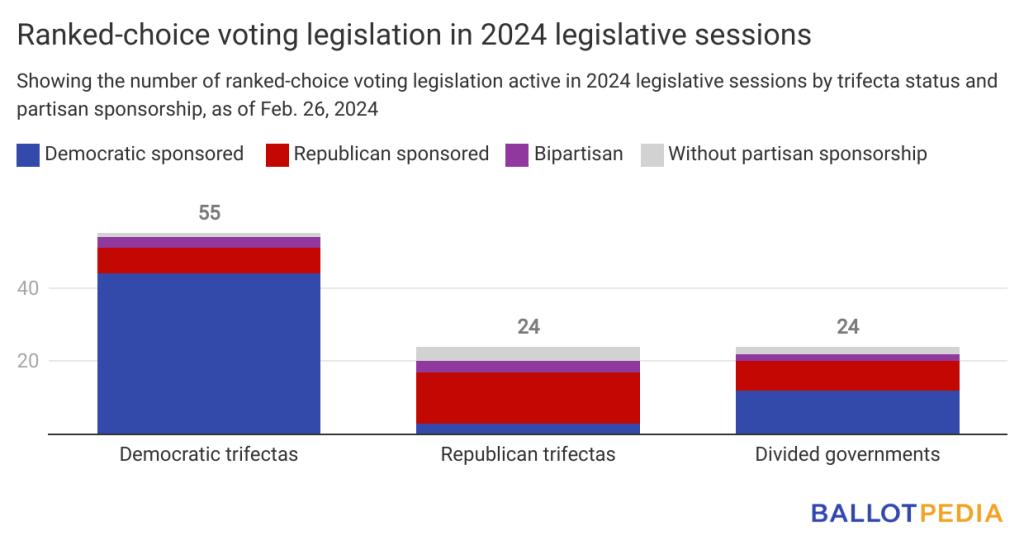
Democratic lawmakers have been more active, introducing 57.3% of RCV bills, while 53.4% of all RCV legislation has been introduced in states with Democratic trifectas.
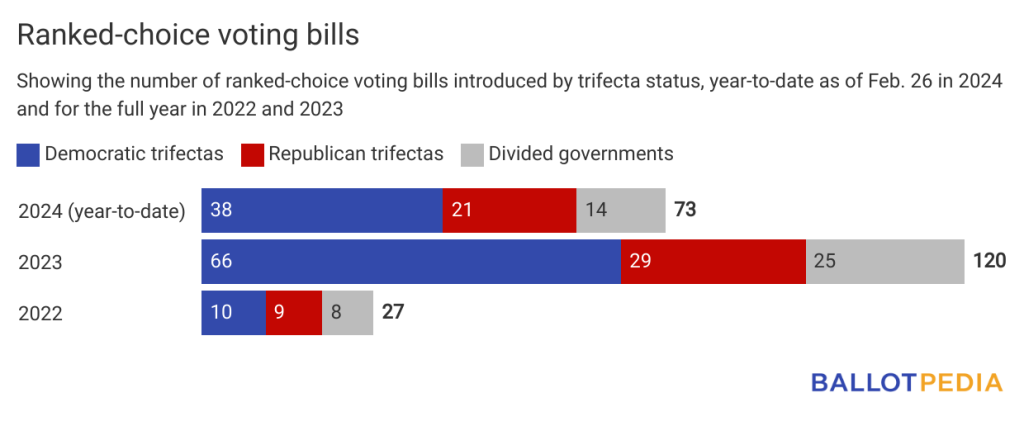
Legislators introduced 73 of the 103 active bills in 2024, while the remainder carried over from last year's legislative sessions.
Differing approaches
Democratic and Republican lawmakers have generally pursued opposing strategies in 2024 legislative sessions. Over 90% of Republican-sponsored bills (27) ban or repeal the use of RCV. Just one bill prohibiting RCV has any Democratic sponsorship, Ohio’s bipartisan-sponsored SB137.
On the other hand, Democrats are seeking to expand the use of RCV largely without Republican support. Of the 62 bills that would allow or implement RCV for new elections, only seven have any Republican sponsorship: Republican-sponsored A3080 in New Jersey and S6235 in New York, as well as bipartisan legislation in Georgia, Maine, Massachusetts, South Carolina, and Wisconsin. Democratic legislators introduced 52 of the remaining bills expanding RCV's use. Three bills did not have partisan sponsorship.
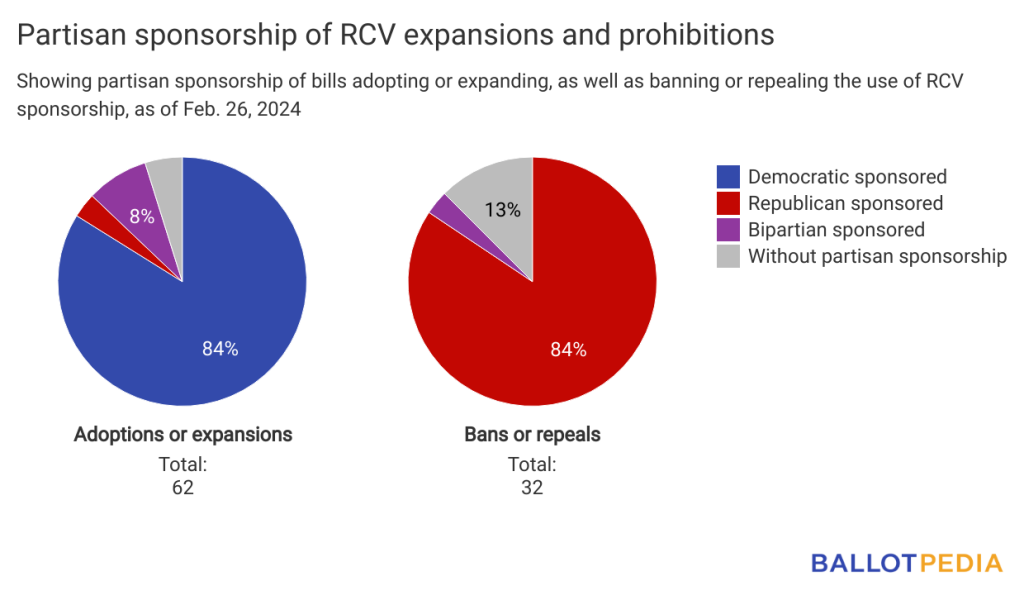
Efforts to ban RCV continue
Legislators in 16 states have introduced legislation to ban ranked-choice voting, including two bills that have passed one chamber of a legislature. Georgia’s SB355 passed the Georgia State Senate 31-19 on Jan. 26th, while Utah’s HB290 passed the Utah House of Representatives 43-26 on Feb. 22.
Ranked-choice voting is not currently in use in Georgia, except for military and overseas voters voting in certain elections. The legislation makes exceptions for these voters. In Utah, 23 localities use RCV as part of the Municipal Alternate Voting Methods Pilot Project which legislators enacted in 2018.
Since 2021, five states with Republican trifectas have banned or prohibited ranked-choice voting, including three states in 2023.
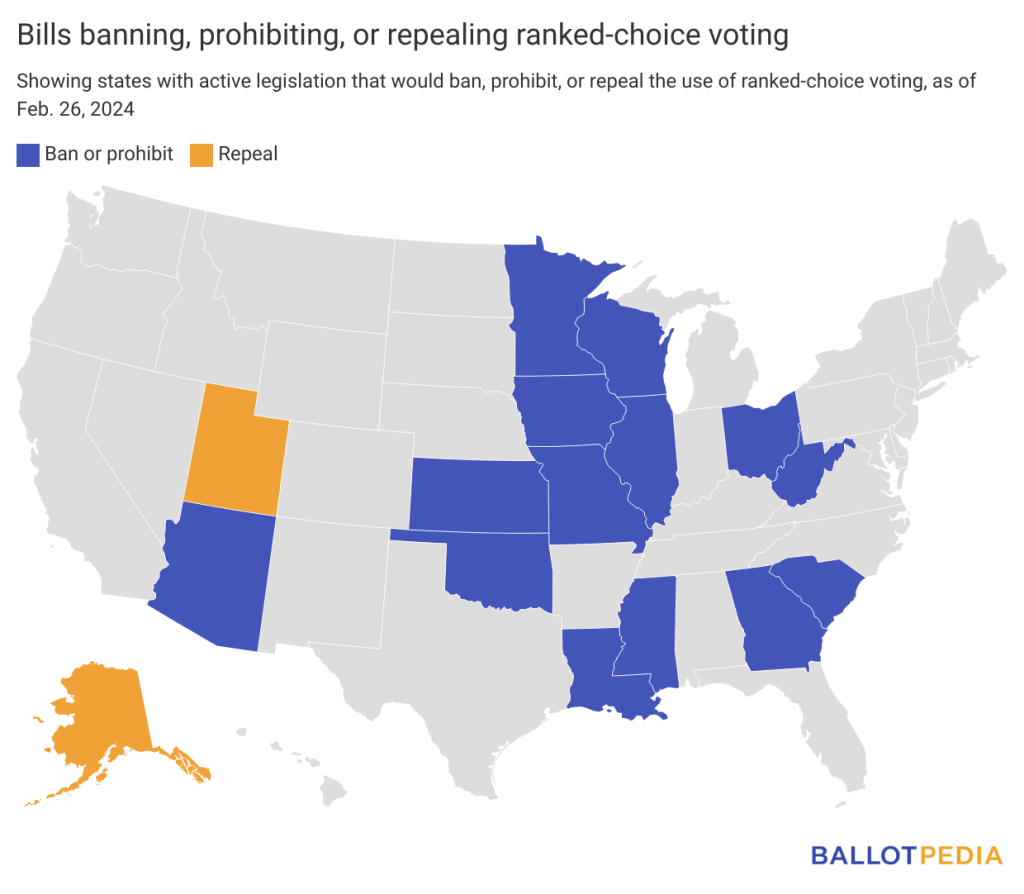
Elsewhere, lawmakers in Alaska introduced AB4 to repeal their state’s use of RCV and an open top-four primary system that voters approved through Alaska Ballot Measure 2 in 2020. Legislators voted the bill out of committee with a favorable recommendation on Jan. 18 this year.
Bills allowing or requiring RCV outnumber bans, but rate of passage stays even
Countering new efforts to ban or repeal RCV, bills in 21 states this year would adopt or expand RCV's use. Legislation to expand RCV’s use outnumber prohibitions by more than 2-to-1. Despite the greater number of introduced bills, lawmakers are advancing RCV bans at a higher rate (6.7% have passed one chamber) than new adoptions (4.8%).
In Virginia, SB270 and SB248 passed the Virginia State Senate on Feb. 12th by a vote of 21-19. The first would allow presidential primaries to use RCV, while the second would permit the use of RCV for any local or constitutional office.
In Vermont, S32, originally introduced in 2023, would adopt RCV for presidential primaries. It passed the Vermont State Senate 23-7 in March of that year. The bill remains active in the Vermont House of Representatives.
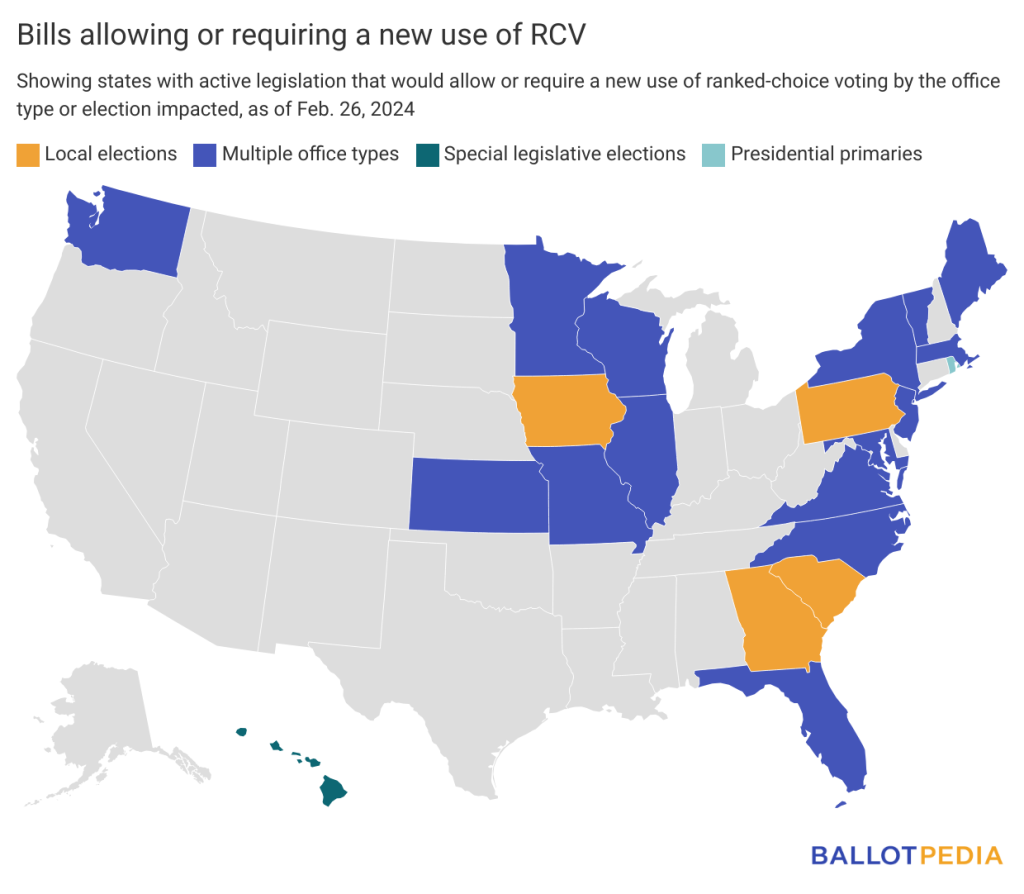
Presidential primaries
In addition to the bills in Vermont and Virginia, legislation in eight other states would adopt RCV for presidential primaries: Illinois, Maine, Maryland, New Jersey, New York, Rhode Island, and Washington.



